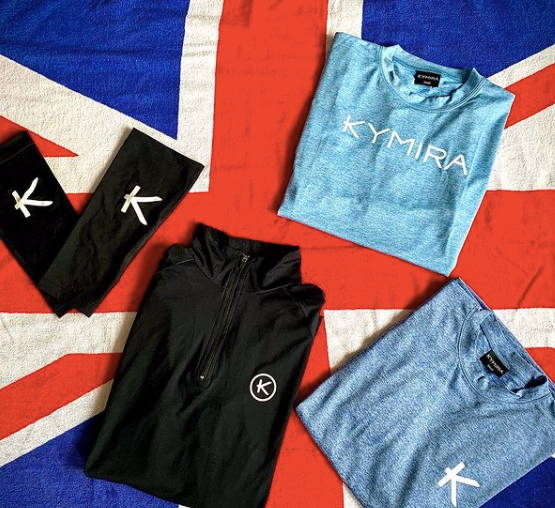In elite sport, travel is a necessary evil. The further up the sporting pyramid you go, the more intense the demands of travel become. Domestic fixtures extend further and further. European fixtures involve a flight and an hour or two shift in time zones.
Further international competition can change the game completely – crossing multiple time zones on long-haul flights, extended impacts on sleep and recovery windows and a general feeling of disruption in preparation and life.
In this article we're going to discuss the impact of travel of sporting results, then see what evidence-based suggestions we can make to minimise the impact of travel on your sporting performance. You can't get rid of travel in sport, but you can reduce the effects that the disruption has.
Time to read: 4 minutes
Beginner
Key Points:
- Travel and sporting success - what we currently know
- Getting travel right - practical suggestions
- Summary
"The further up the sporting pyramid you go, the more intense the demands of travel become"
Shop Performance
Travel and sporting success - What we currently know
The impact of travel on sporting success is beyond any reasonable doubt now. Across multiple sports (MLS, NBA, NFL, NBA as a basic start), research shows that winning percentages and sporting success are lower in teams who travel further. [1], [2].
Interestingly, the impact is reduced when teams travel from west to east [3]. This theoretically makes sense, because travelling from west to east means that you are going ‘forward' in time, so players arriving from the west will be more awake later in the evening. If (such as in the case of European football competition and lots of American sports) you are playing fixtures at night, this can benefit the travelling team.
The evidence as to why travel impacts athletic performance is abundant, and in many cases the conclusions drawn are obvious. Rather than explain them all in a long-winded way, I'll summarise the main findings here…
1. Jet lag is an obvious influence. A tired athlete is physically less capable of elite performance, and psychologically is more likely to make poor decisions under pressure in competition [4].2. In-flight sleep quality and efficiency is reduced [5]. Even if the athletes do manage to sleep, the likelihood is the quality won't be as good as it would be in a bed.3. The back-and-forth nature of travel between time zones can cause delays in returning to a ‘normal' sleep pattern [6]. This is exaggerated the further a team travels and the more delays/hold ups there are.
Teams have tried many different approaches to reducing the impact of travel on their sporting success, including…
• Use of stimulants (caffeine) to keep athletes awake for longer so they can play late games• Adjusting dietary intake (going lower carbohydrate in some cases) to adjust sleep windows• Using melatonin to force sleep when players need to change their sleep/wake cycle
The problem is here that unfortunately, none of them really work effectively. Some athletes are particularly sensitive to administered substances, so that can create a different problem further down the line - keeping athletes awake longer than required, which impacts postgame recovery.
The reverse is true when you try to induce sleep – it assumes that the supplements will work, plus it's difficult to get the timings right because we're all so individual. You don't want to chemically-induce more drowsiness in an athlete, only to have them struggle to be fully awake for competition.
Nutritionally, the evidence in support of manipulating macronutrients to improve sleep is at best, very light. Certainly not enough to base a travel plan on. Also athletes need a carbheavy diet at times, so going low carb won't always be appropriate.
Getting travel right - practicaL Suggestions
Despite these observations, you can still minimise the disruption through travel. It's about working within the limitations of the situation yet maximising the opportunity for smooth journeys.
Here's the practical suggestions list…
1. Give yourself as much time as possible. This isn't always practical, but where possible get your travelling done early. This gives athletes more time to rest ahead of competition.2. The earlier you travel ahead of competition, the lower the stress impact will be should you be delayed. Stress is a known inhibitor of sleep, so remove as many stressors as possible [6].3. Reduce/remove the reliance on stimulants/sleep-inducers. Research shows it's very difficult to force a phase-shift in sleep so quickly.4. Use infrared clothing during travel – research shows that infrared fabric helps to improve sleep efficiency, so stack the deck in your favour by maximising the quality of sleep in your available sleep time [7].5. Travel back as soon as you can. The quicker you can return to ‘normal' sleep patterns post competition, the better.
The reality is sporting organisations have tried for many years to minimise travel disruption, but the success of the more complex approaches hasn't been enough to justify their complications.
Travel early, maximise recovery, use infrared to improve sleep quality and try to remove as many stressors as possible. These simple suggestions are yet to be bettered, despite the money thrown at the problem by many organisations. At KYMIRA we sell casual clothing that is ideal for travelling, as well as sleepwear which will help to improve sleep quality and efficiency.
Shop KYMIRA
References
[1] https://trace.tennessee.edu/cgi/viewcontent.cgi?article=1425&context=jasm[2] https://www.researchgate.net/publication/328355441_Domestic_and_International_Travel_Implications_for_performance_and_recovery_in_team-sport_athletes[3] https://www.sciencedaily.com/releases/2016/06/160614133619.htm[4] https://www.researchgate.net/publication/233396111_Effect_of_airline_travel_on_performance_A_review_of_the_literature[5] https://www.ncbi.nlm.nih.gov/pmc/articles/PMC3524531/[6] https://www.ncbi.nlm.nih.gov/pmc/articles/PMC4266573/[7] https://www.researchgate.net/publication/326659879_The_effect_of_farinfrared_emitting_sheets_on_sleep
